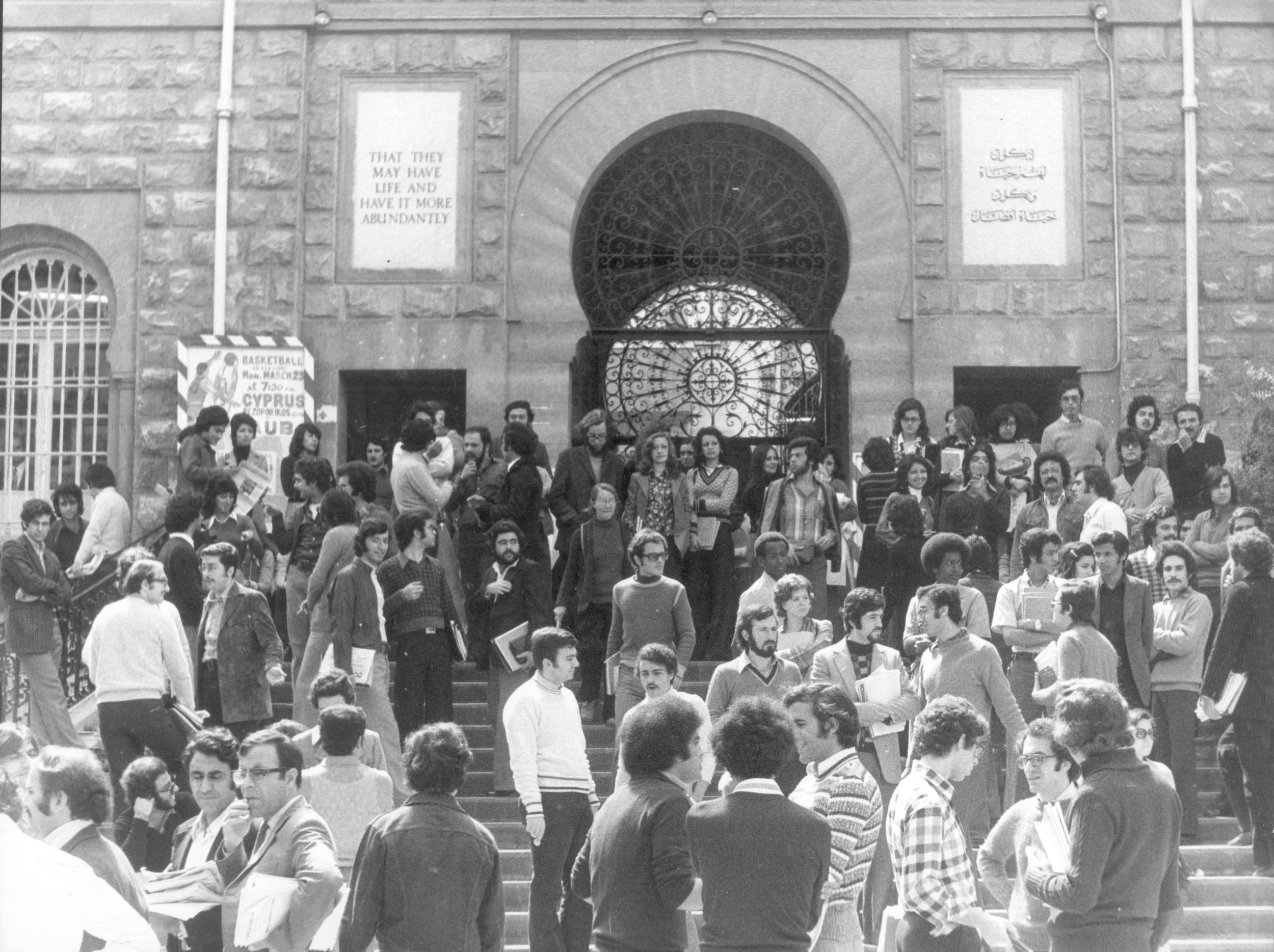1974: Lebanon is in intellectual, cultural and political ferment. Between
March and April, for 37 days, the students of the American University of
Beirut occupy the university’s premises to protest against rising tuition fees.
2011: In the midst of the Arab Spring, Rania and Raed Rafei decide to step
back and reconsider today’s situation in light of that period which was
pregnant with hope, but also a prelude to a civil war.
Should they revive the past? Recall it? Reconstruct it? That’s a crucial
question. Here the method is decisive. First, make meticulous research.
Then launch the experiment, as the film doesn’t only reread past events
but also searches for their echo in today’s time. Thus yesterday’s protagonists
are portrayed by their likely modern counterparts, political actors
involved in present struggles. What is democracy today, and how can we
fight? A few guidelines, a few emblematic accessories as so many signs (a
picture of Che Guevara, a megaphone), and here they go, launching into an
experiment based on improvisation, in which a form of theatricality accentuated
by the enclosed setting interacts with cinema. And in this dialectic of
past and present, memories go around as freely as words in the present time,
just like in the interviews which punctuate the film – yesterday’s and today’s
words getting inextricably mixed. (Text by Nicholas Féodoroff)
